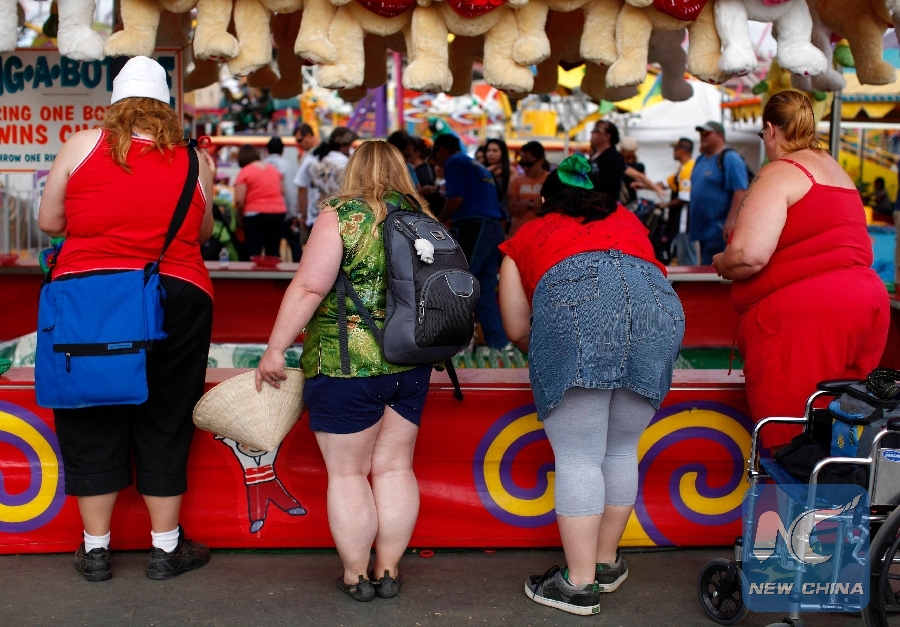
REUTERS Photo
WASHINGTON, April 25 (Xinhua) -- Researchers found that eating high-calorie diet under stress could result in more weight gain than eating the same diet in a stress-free condition.
The study published on Thursday in the journal Cell Metabolism revealed a molecular pathway in the brain, controlled by insulin, which drives the additional weight gain under stress.
"This study indicates that we have to be much more conscious about what we're eating when we're stressed, to avoid a faster development of obesity," said Herbert Herzog, head of the Eating Disorders laboratory at the Garvan Institute of Medical Research.
They found that at the center of this weight gain was a molecule called NPY, which the brain produces naturally in response to stress to stimulate eating in humans as well as mice.
"We discovered that when we switched off the production of NPY in the amygdala, weight gain was reduced. Without NPY, the weight gain on a high-fat diet with stress was the same as weight gain in the stress-free environment," said Kenny Chi Kin Ip, the study's lead author and a researcher at Herzog's lab.
The food intake is mainly controlled by a part of the brain called the hypothalamus, and another part of the brain called the amygdala processes emotional responses, including anxiety, according to the researchers.
However, the researchers found that nerve cells that produced NPY in the amygdala had receptors for insulin, a hormone which control food intake.
Normally, the body produces insulin just after a meal, which helps cells absorb glucose from the blood and sends a "stop eating" signal to the hypothalamus feeding center of the brain.
In the study, the researchers discovered that chronic stress alone raised the blood insulin levels only slightly, but in combination with a high-calorie diet, the insulin levels were 10 times higher than mice that were stress-free and received a normal diet.
Those prolonged, high levels of insulin in the amygdala caused the nerve cells to become insensitive to insulin, which stopped them from detecting insulin altogether.
Then, the heightened NPY levels promoted eating and reduced the bodies' normal response to burn energy through heat, creating a vicious cycle, according to the study.

